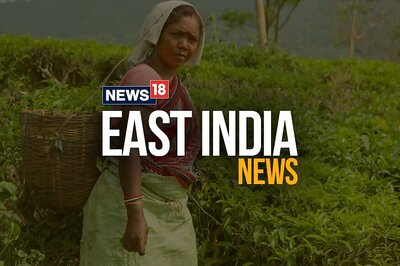
views
Two days ago, the Government of India issued a directive asking social media companies to voluntarily curb fake news and misinformation related to the coronavirus on their platforms. The move is among the most important steps adopted by the Indian government in their bid to tackle the rise of COVID-19 cases in the country, and preceded the extended nationwide lockdown that has now been put in place, to prevent the community transmission threat that looms large in stage III of the coronavirus pandemic.
In light of this, the Indian government issued a directive to all social media companies on Friday, March 20, asking them to actively prevent sharing of fake news on their platforms, raise awareness, take down any misinformative posts and offer genuine news sources on their platforms. With social media platforms playing an increasingly critical role in public discourse today, here’s what the largest social media players in India are doing in order to comply with the government’s order.
Facebook (including Instagram and Messenger)
Beginning with Facebook, the world’s largest social media giant, has stated that its fact checking partners have been tasked with rating COVID-19-related content as true or false. In resources shared with News18 by a company source, Facebook states that once a particular article is rated false, it will “limit its spread” on relevant platforms, and simultaneously notify individuals that a particular piece of shared content has been fact-checked. For content that has been flagged by the likes of WHO, CDC and other authority bodies, Facebook has stated that such links will directly be removed.
Additionally, all searches about coronavirus on Facebook and Instagram will link users to official content on the WHO’s platform. Information in eight local Indian languages will also appear on Instagram from local authorities, to fight misinformation. Primary targets of such fact checking include removing content that discourages treatment, suggests alternate or fake cures, and creates healthcare confusion. The company has also banned ads of face masks or any businesses looking to cash in on the coronavirus keyword, and assigned ad credits to ministry departments, to help them promote accurate information and advisories on the COVID-19 pandemic.
The microblogging platform has created a page that works as an information hub to help people discover accurate information easily, among other steps. In a statement shared with News18, Mahima Kaul, director of public policy with Twitter India and South Asia, said, “We’re making the latest facts easy to discover by placing them at the top of people’s timelines and within the Explore tab. In India, we have partnered with the World Health Organization (@WHO) and the Ministry of Health and Family Welfare. We have also launched a dedicated COVID-19 Event page in English and Hindi that has the latest facts right at the top of the home timeline. We’re expanding our safety rules and broadening our definition of harm to address content that goes directly against guidance from authoritative sources of global and local public health information. In addition to reports, we will enforce this in close coordination with trusted partners, including public health authorities and governments, and continue to use and consult with information from those sources when reviewing content.”
TikTok
Perhaps one of the most popular viral video social media platforms in the world, TikTok plays a significant role, particularly among new and first time internet users in India. In a rather limited statement shared by a TikTok spokesperson with News18, the company claims that it will “remove deliberate attempts to deceive the public.” However, the company’s efforts seem largely reliant on user reports, than a wilful, pre-emptive effort from the company to comb the platform and its hashtags, and take down potentially problematic content.
Like other platforms, TikTok has also integrated resources from the WHO, and stated that users who search for the coronavirus hashtag on TikTok will also get access to healthcare directives and WHO-approved resources on their pages. However, as stated before, pretty much all of the company’s efforts will depend on its users showing awareness and reporting content that might be misleading.
According to resources shared by a WhatsApp spokesperson with News18, the world’s most popular chat application has introduced three official automated chatbot-based helplines so far — the Indian government’s MyGov Corona Helpdesk, the global WHO Coronavirus Helpline, and UK.GOV, the British government’s coronavirus healthcare line. Each of these three services work as an IVR in the written form, and give all of WhatsApp users access to safe and accurate healthcare practices, accurate reporting on latest updates, official figures of coronavirus infections in India, around the world and in UK, and more. In India, WhatsApp is encouraging users to adopt these official channels, instead of relying on forwarded messages circulated in groups, for an accurate understanding. For India, the MyGov helpline is designed to rid the platform of any misinformation, giving users an official channel to receive news articles.
YouTube
A statement given to News18 by a YouTube spokesperson on the matter claims that the platform is “raising authoritative content, reducing the spread of harmful misinformation, and showing information panels using WHO data and Ministry of Health and Family Welfare in India,” as part of reducing the amount of misleading videos on the world’s largest public video platform. However, the spokesperson also stated that YouTube most likely depends on its users to flag problematic content. As stated to us, YouTube reportedly has “clear policies that prohibit videos promoting medically unsubstantiated methods to prevent the coronavirus in place of seeking medical treatment, and we quickly remove videos violating these policies when flagged to us.”




















Comments
0 comment